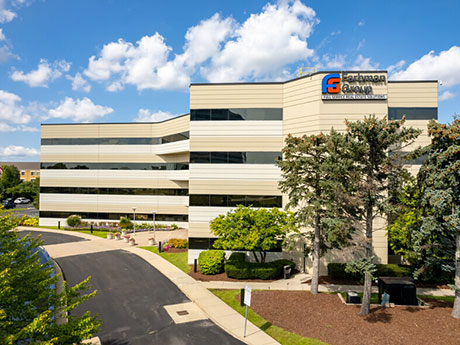By Andy Gutman, Farbman Group
It’s no secret that the last few years have been a turbulent time for the office market nationally. While Detroit has fared somewhat better than some other cities across the Midwest, the same pandemic (and now post-pandemic) pressures have led to a higher-than-usual degree of uncertainty and volatility.
Here in the early part of 2023, it’s a good time to take a step back and look at how the Detroit office landscape is changing, how it’s not changing and what might be in store throughout the rest of the year — and beyond.
This is a unique time because there’s still a tremendous amount of uncertainty to factor into the commercial real estate market in general, and into office specifically. There are a lot of brands and businesses who either have not made up their mind about their office structure and needs going forward, or are still in an experimental post-pandemic period where they are trying to figure out the balance that works for them in terms of remote or hybrid work options and brick-and-mortar configurations.
Until more of that uncertainty is resolved, a clear picture of the medium- and long-term prospects for the office segment remains somewhat elusive.
Decisions about what to do with existing office space look and feel quite different from the landlord side of the ledger. Office owners are thinking about (and in some cases acting on) plans to convert underused office space into hotels, storage space, multifamily or other uses. As some of that fat gets trimmed and more vacant space comes offline, office markets in Detroit and around the country will get closer to an equilibrium that is right sized for the needs of today’s office users.
One factor that cannot be ignored that could impact the speed with which that rebalancing takes place is the impact of high interest rates. A high interest rate environment makes it tougher for landlords to refinance some properties that were performing in a good economy while also potentially making it tougher to redevelop or reconfigure existing spaces.
While there are a lot of moving parts and a higher-than-usual degree of uncertainty, the doom and gloom that was prevalent in the early days of the pandemic is largely a thing of the past. There is a lot of optimism out there as more companies return to work in brick-and-mortar spaces. We are seeing some shrinking footprints, but also some noteworthy expansion: an atmosphere that feels somewhat like the typical ebb and flow of a healthy market than a recessionary scramble.
There are (and will always be) growth sectors and high-performing categories in office. Mortgage companies may have plummeted, for example, but that just frees up space or sublease opportunities for healthcare companies, medical tenants, science and tech brands, and financial services companies, all of which are enjoying a period of general prosperity and expansion.
In Michigan and Detroit specifically, this has created somewhat of a musical chairs phenomenon in the office market. In addition to that continuing reshuffling, we are also seeing somewhat of a flight to quality, as growing numbers of tenants recognize that even if they need a little less space, it behooves them to invest in quality facilities, prime locations and premium amenities that can help entice people back to work and bolster recruiting and retention going forward.
In 2023, one of the most noteworthy office trends to watch is the degree to which owners are being both creative and proactive about attracting and retaining tenants.
From elevating standard amenities like conference centers and architectural and design elements, to outside-the-box ideas like doggy daycare and elevated food and beverage options through things like automated pizza machines, landlords are going the extra mile. Sponsored happy hours and other special events are also on the rise. Tenants and office users are doing their part to create similarly engaging and appealing office environments.
In a stark 180-degree turn from the early post-pandemic period, when there was a lot of speculation about how to reduce office populations or keep people apart, companies are recognizing the value of vibrant, creative and communal spaces and experiences.
In Detroit and across the country, the demise of office has been overstated. What we are witnessing instead is an ongoing evolution, an exciting time for an exciting space. As we’ve seen so many times in hotel, multifamily and retail, the cyclical nature of commercial real estate is part of what makes it so fascinating. The office landscape is changing and will likely never look quite the same again — but that’s not a bad thing.
Change is the only constant, and it’s exciting to see growing numbers of both landlords and office tenants recognizing that wringing our hands and wishing for the past isn’t just pointless, it’s counterproductive. Instead, identifying new tenants, new spaces, new ideas and new experiences is what will continue to fuel the future of this fascinating and important segment.
Andy Gutman is president of Farbman Group. This article originally appeared in the February 2023 issue of Heartland Real Estate Business magazine.



